Welcome to another issue of The Newport Cornucopia where we dig through the newspapers archives for interesting news articles and adverts. All articles are posted verbatim and most headlines are original (headlines in quotes are my own).


Stealing Water
Mary Sullivan, a young girl, pleaded guilty t0 stealing the water of the Newport and Pillgwenlly Water Works Company — [This case would have been taken by the magistrate of borough, (two being required to act), but that all on the Bench last Monday except the Mayor, were shareholders in the company. His Worship now sat with the Rev. Chancellor, [Mr. Russell having left.] Mr. Webber said the case had been bought forward, by way of preventing a continuance of the offence, which had become of too much frequency in the town. It had been proved that upwards of fifty families were supplied gratuitously, by robbery. [We understand that in this case the water was taken by numerous families from an exposed tap in a quarter where the public have access to it; the tap having been put up for the convenience of several parties who were to have paid for it.] —Mr. Webber said the penalty for the offence was £2, and three months, imprisonment in default of payment. This would be enforced, in future cases. —The Mayor hoped the kindness of Mr. Webber on this occasion, would be properly appreciated but it must at the same time be recollected, that all future offences of the kind would be punished to the greatest extent permitted by law for it was an offence of a very improper kind. He hoped the public would take warning by the present case. —The Rev. Chancellor said the penalty of £2, or three month’s imprisonment, was one of a serious character; and would be found so, t00, when inflicted in the next case which might be brought up. —The intimation of Mr. Webber, that the company would not proceed for the penalty in this case, induced the Bench to dismiss the girl with a caution, and an order to pay 4s. 6d. costs.
— Monmouthshire Merlin, Friday 19th March, 1852

Newport Electric Theatre: A Message From Mars
In October 1913, the Newport Electric Theatre secured what is considered to be the first British sci-fi film. The film was based on an 1899 play and this is the plot from Wikipedia.
Horace Parker is an exceedingly self-centered, wealthy man. Not only is he a miser, but he also expects everyone else to conduct their lives according to his personal convenience.
Parker is engaged to Minnie Templer, but Minnie has discovered Parker's selfishness and she is on the brink of calling off the engagement.
On Christmas Eve, however, a messenger from Mars comes to Earth to show Parker the error of his ways. The two of them become invisible and eavesdrop on all the terrible – and true – things Parker's friends and family are saying about him.

From the South Wales Argus, Friday 10th October, 1913 (subscription required):-
Management of the Newport Cinema, that conveniently-situated picture theatre in the High-street, are ever to the fore in securing for their patrons the latest attractions. Next week they are "going one better" in obtained the splendid film showing Mr Charles Hawtrey and his full London company in the great play "A Message From Mars", which has been aptly described as the "greatest success of recent years". Everyone will remember the wonderful play with its strong emotional love and dramatic interest. The fullest advantage has been taken of the facilities the film-maker is able to control, and with Mr Charles Hawtrey in the part of Horace Parker, the great attraction of the film will appeal to all.
Marvellous mechanical effects are utilised in the scenes on Mars itself, and in the thrilling rescues at the fire scene motor fire engines are seen busily engaged, and dramatic situations have been filmed with familiar parts of London.

Crowded houses may be confidently predicted for the Cinema during the week, and intending visitors should book their seats beforehand. "A Message from Mars" will be screened at 3, 5, 7 and 9pm.
Watch The Film
The full 1 hour film is available to view for free on YouTube. The film was restored by the BFI in 2014 and features the original toning and tinting.

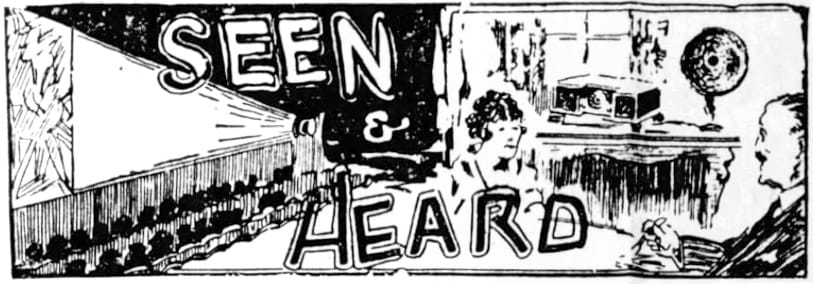
'The Woman Who Had Never Ridden an Iron Horse'
A Newport doctor informed me the other day that he had attended an old woman who died at Marshfield at the age of 94, and had never been in a railway train in her life. It seems almost incredible that anyone should live so near a railway and yet never take on journey behind an "iron horse:" but some of the old people are very prejudice against "modern" innovations.
— South Wales Argus, Saturday 11th November, 1899
'Bears In Maindee?'
A Newport workman on his way to work a little before six the other morning had a rather startling experience. Near The Maindee, on the Chepstow Road, he saw what he thought to be a big dog lying in the gutter, and, feeling that friendly approaches would be not only decent, but politic, he slapped his leg saying insinuatingly, "Good dog, good dog." But the "good dog" did not respond, and he repeated his salutation.
Suddenly there arouse, and towered above him, a great black form. He did not know whether to run or show fight; and he ended by doing neither. It was a bear which aroused from slumber, had risen on its hind legs, evidently thinking that it as time to dance or to give his disturber an affectionate hug. The bear was very much frightened. On looking round the man found that there were four foreigners and three bears camping out in the gutter.
— South Wales Argus, Saturday 11th November, 1899
'Flowers in Bloom in Belle Vue Park'
Every lover of flowers — and who is not? — should take the earliest opportunity of viewing the chrysanthemums staged in the pavilion at Belle Vue Park. The blooms, including many new varieties, are excellently arranged and accurately and legibly named, the interest of the specialist and the wonder and admiration of the novice liking thereby increased. Among many interesting plants in the adjoining house is a particularly fine camellia, full of bloom.
— South Wales Argus, Saturday 25th November, 1899



’Nuisance, Out-of-town Girls’
The Chief Superintendent read his usual report, one item of which gave rise to a discussion relating to a nusiance. Alderman Latch said he had to call attention to a very great nuisance which existed in his neighbourhood. The unfortunate girls of the town came out in droves of six or eight, dressed in the most preposterous manner. He never saw such a thing in any other part of England. Two of them entirely swept the pavement.
The Mayor: They dress more like mountebanks than anything else.
Alderman Latch said the borough was now paying £1700 a year for police purposes, and he asked whether such a thing was to be seen in any other part of England ? Besides, he had called the attention of Mr. Huxtable to the matter privately, and now he deemed it his duty to apeak publicly respecting it. He (the Alderman) had gone to one policeman and asked him if he could not put a stop to it; and the officer replied, “What am I to do? If these women are brought up before the magistrates, they are discharged, and we are laughed at.” He must ask — Could nothing be done to stop such an abomination?
When they had Friars'-fields as the receptacle of vice, it did not show itself so rampant to all the world. Then, on a recent occasion, when the volunteers went to the Market-place, the voice of the adjutant word could not be heard, there was such a rabble. What, he asked, did they pay £1700 a year for, if these nuisances could not be abated?
The Chief Superintendent: The law does not justify me in taking the girls into custody. They go through the streets dressed in an extravagant manner but they do nothing to cause an obstruction or to block up the passage in the streets, and I cannot touch them.
Alderman Latch: I beg your pardon. No man or woman can pass by them. There they are in groups.
The Mayor Just so but where is the legal remedy?
The Town Clerk: If they walk quietly along we can do nothing.
Alderman Townsend: As to talking to the police you might as well talk to the stones. I have asked them to remove this and other nuisances but it is of no use.
Mr. H. J. Davis Every Englishman and Englishwoman has a perfect right to walk the street, as long as their conduct is decent.
— Monmouthshire Merlin, Saturday 29th March, 1862

Lamp, Commercial Street
The proprietors of the Star of Gwent have, with the consent of the Public Works Committee, removed their bracket lamp, and have supplied an ordinary lamp instead, which has not yet been refixed. As this part of Commercial-street is as well lighted, even without lamp No. 103, as many other parts of the town, it may be matter for consideration, in the event of the Stow-hill improvement being carried out, whether this lamp should be removed to one of the new slips in that road.
— Monmouthshire Merlin, Saturday 29th March, 1862

‘A Month on the Treadmill’
Peter Davies was charged on remand with leaving his wife and family chargeable to the borough of Newport. It appeared that defendant bad been working at Bangor, where he was living with another woman, and there seemed to be a question whether he was not married to her.
The wife, who presented a very respectable appearance (to defendant): You had better tell the truth. You must know whether you are married to her.
—Defendant No, I am not, and I never paid a penny to her.
In reply to the Bench, the wife said her husband had not visited her for twelve months; but he had sent her money up to January. The defendant had stated on Friday that he had sent his wife £2 in February, but a letter from his employer, Mr. Fourdrinier, received in the meantime, entirely falsified that statement, and set forth that up to a pay day in February he had been his foreman of carpenters, and had left at his own desire without any notice. The defendant persisted that he had left the money with his master to forward.
— The Mayor: Have you anything to say why you should not be sent to prison?
—Defendant: Will you please to allow me to write to my father for the money.
—The wife: You know your father has assisted you as far as he can. The poor old man cannot do anything further.
—The Mayor: You can write to whom you please, but you must first spend a month at the treadmill.
— Monmouthshire Merlin, Saturday 29th March, 1862
Theft of Straw at Undy
Valentine Curnock, carpenter, Undy. was charged with stealing two boltings of straw, the property of Miss Jane Musgrove, at Undy. Miss Blanche Musgrove said that she lived with her aunt, who was a farmer.

On the 18th of July, at night, she met the prisoner coming out of the mowstead, carrying the straw (produced) on his back. She asked him what he wanted there, and he said he wanted some straw to put a shelter over his workship. Took the straw from him, put it in the house, and locked it up. The straw produced is the same. Prisoner pleaded guilty, and was sentenced to 14 days' hard labour.
— County Observer and Monmouthshire Central Adviser, Saturday 29th July, 1871
‘Drunk Little Old Welshwoman’
Mary Jones, a little old Welshwoman, was charged with having been drunk. She pleaded in broken English, that “she had never got drunk before-never in her life.” She recounted all the places where she had been in service. She had taken three half pints, and felt rather tipsy. —Discharged with a caution.
— Monmouthshire Merlin, Saturday 29th March, 1862
‘Landlord Fined For Refusing To Admit Police’
William Miller, landlord of the Sailor's Return, beer-house, was summoned for refusing to admit the police. Chief Superintendent Huxtable said the house was a notorious brothel, next door to the Castle, Commercial-road, kept by the defendant's daughter, who being unable to obtain a license, had got her father to take out a license. He lived in Pill. Defendant said his daughter had seven young children. Fined 20s. and costs.
— Monmouthshire Merlin, Saturday 29th March, 1862
‘Another Incident at the Sailor’s Return’
Mary Ann Coles was charged with being drunk and assaulting the police. P.C. Gould said that the defendant, in company with another prostitute, was creating a disturbance before the Sailor's Return public house. They were ordered to go home repeatedly. At length Coles gave the officer a slap in the face. Fined 5s., or seven days.
— Monmouthshire Merlin, Saturday 29th March, 1862
'Language More Disgusting Than Ever Heard Before'
Jane Bannister and Mary Ann Price were charged with being drunk and disorderly.—P.C. Jenkins gave the prisoners a very bad character for ill-conduct in the streets, where their language was more disgusting than ever he had heard in the public streets before. Respectable persons could not pass along, without being shocked by their foul ribaldry. —Severely cautioned, and fined 2s. 6d. each, and costs, or three weeks' imprisonment.
— Monmouthshire Merlin, Saturday 26th May, 1854



Fire Engine Committee's Report
The following report was presented by the committee:—
"The Committee proceeded to examine the engines, and found the new engine in perfect repair and good working order.
"That the 36 fire buckets, 24 at Town station, and 12 at Pill, are in perfect order.
"That there are eight lengths of hose at Town station, 360 feet; and three lengths at Pill, about 100 feet.
"That there are also three standpipes, one a double action, and one single, at Town station; and one, single, at Pill. These fit the old plugs.
"The old Engine is out of repair, and ineffectual, and will require a considerable sum to put it in repair; added to which, it is made on the principles which existed forty years back. It is questionable whether it will not be better to dispose of it, and procure one on the present principle.
"We understand that the expense of repair would be about £60 or £70.
"Under these circumstances, the Committee would recommend a new engine to be procured, instead of repairing the old one. They further recommend that twelve more buckets should be procured, so as to have the same number at Pill, as at Town station.
"Also, an additional quantity of hose, three lengths, of 40 forty feet, with brass joints and three short lengths, to communicate with new fire plugs and one short piece, to communicate with Canal Company hose.
"Two sets of telescope ladders,—one for Town station, and one for Pill; three lengths, of 14 feet each.
"They also recommend that the Police exercise with the engines once a month.
"That a fire-escape, suitable for houses the height of the King's Head, which the committee believe to be the highest building in Newport, be procured.
"Also, a short length of hose, to communicate with the Waterworks, at Pill.
"Your Committee have taken on themselves to order the three short lengths of hose, to communicate with the new fire plugs; and the two short lengths to communicate with the hose of the Canal Company, and the waterworks at Pill.
"We lay before you a letter from Messrs. Llewellyn and James, of Bristol, calculating the expense of repairing the old engine as £40, but subject to further and minute examination."
Mr. Knapp and Mr. Sheppard were of opinion that too large an outlay was proposed by the Committee, considering that some of the things recommended were not essential — for example, the fire-escape could scarcely be considered necessary, in addition to an improved engine, telescope ladders, &c.
Mr. Mullock said the present engine bad been recently proved to be efficient and if put into thorough repair, would do instead of a new one.
The Mayor stated several objections to expending money upon the present engine.
Two or three members suggested that application should be made to Insurance Companies to bear a portion of the expense of a new engine. Others considered such applications would be fruitless and it was ultimately determined to adopt the Committee's report in its entirety.
— Monmouthshire Merlin, Saturday 23rd March, 1855

Hydrants
Several new hydrants are required in different parts of the town, and an order for the additional ones, in the undermentioned places, might, I think, at once be given, viz: One in Stow-hill, by old turnpike one in Stow-hill, near borough boundary one in York-place one in Commercial-street, between Llanarth-street and Corn-street; one in Dock-parade; one in road, east side of Usk, near turnpike gates.—[Ordered.]
— Monmouthshire Merlin, Saturday 12th April, 1862

'Inspector of Nuisances Finds Diseased Meat'
The Report of the Inspector of Nuisances stated, inter alia, that Thomas Thompson, of Maindee, had been fined 40s. for having diseased meat in his possession.
— Monmouthshire Merlin, Saturday 12th April, 1862

'15 People Found Living in Cottage on Stow Hill'
Alderman Townsend directed attention to a cottage near the Red Lion, Stow Hill, comprising two rooms, in which it was said fifteen persons resided. The Inspector said he had received complaints of nuisances there, and intended visiting it, Dr. Davies having promised to accompany him.
— Monmouthshire Merlin, Saturday 12th April, 1862




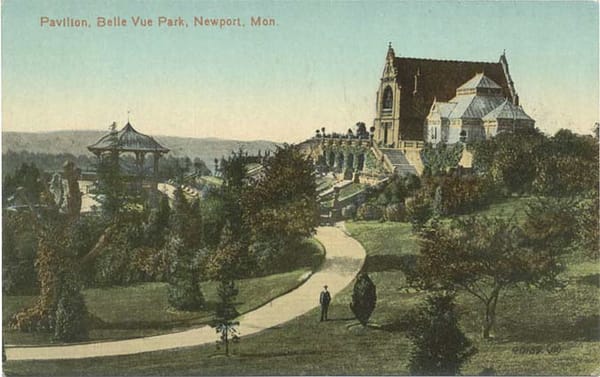
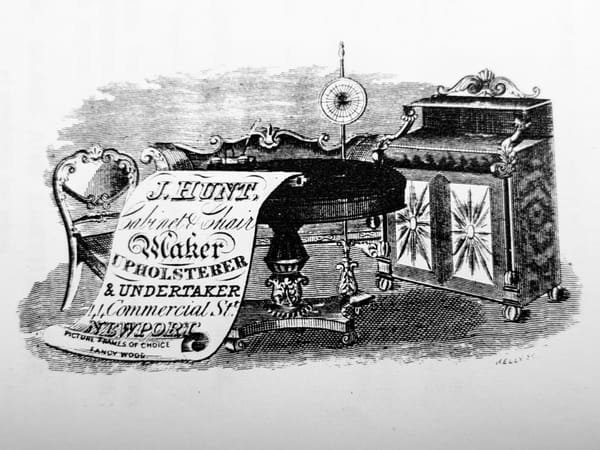
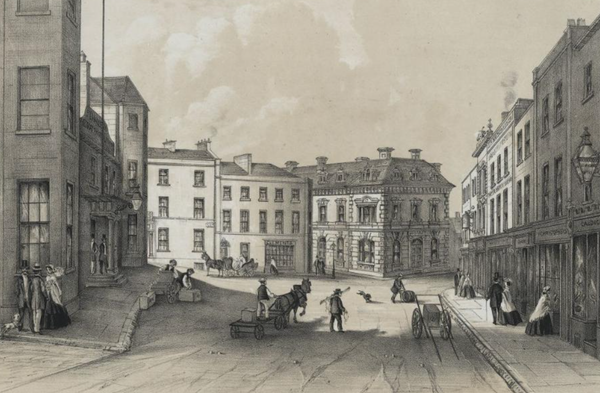
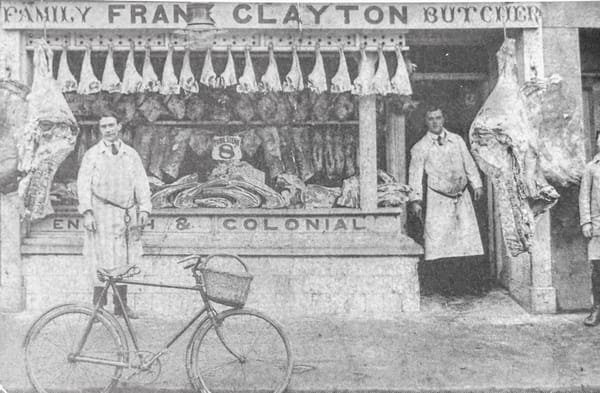
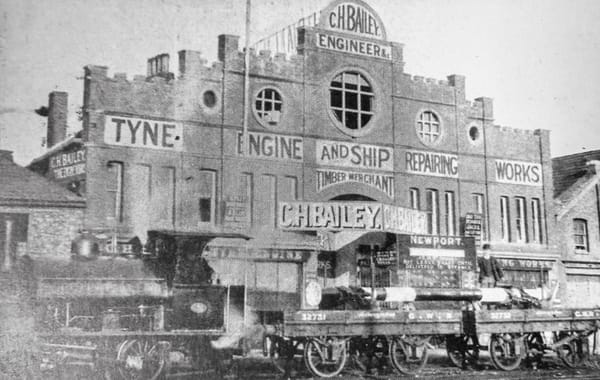

Member discussion